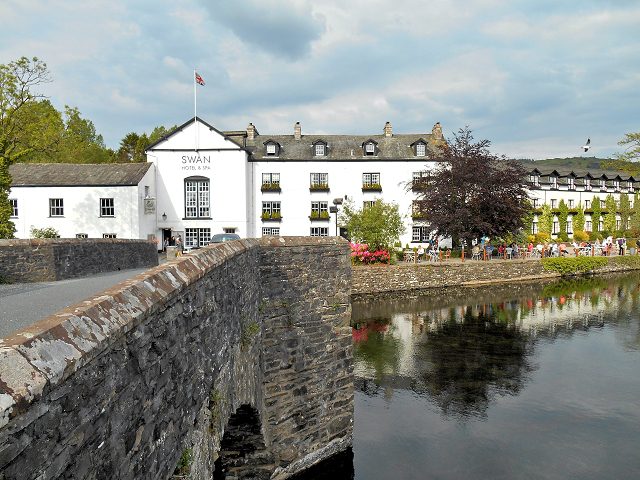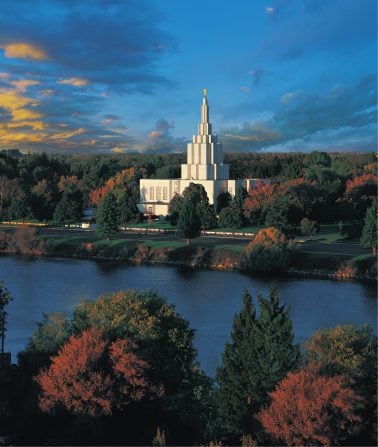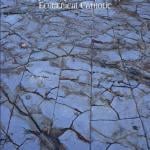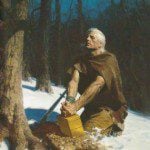
After a long day’s drive via country roads from Edinburgh via Hadrian’s Wall and the small market town of Alston, which has a Latter-day Saint historical connection, we’ve finally arrived at the justly famous Lake District, which is known not only for its beauty but for its association with William Wordsworth (1770-1850) and other notable poets and writers associated with English Romanticism. Not very far from us is Dove Cottage, in the village of Grasmere, which is famous as the home between 1799 and 1808 of Wordsworth; his wife, Mary; and his writer-sister, Dorothy. Much of Wordsworth’s most famous poetry, including “Intimations of Immortality” (see below) and “I Wandered Lonely as a Cloud” (aka “Daffodils”), came from this place of “plain living, but high thinking.”
Dove Cottage would be sacred enough to devotees of English literature were it only for the residence there of the Wordsworths. But it rapidly became a center of the English Romantic movement, hosting frequent visits and sometimes lengthy stays by such people as Samuel Taylor Coleridge, Robert Southey, Sir Walter Scott, Charles and Mary Lamb, Thomas De Quincey, and, added into the bargain, the notable chemist Sir Humphry Davy. In fact, De Quincey succeeded to the ownership of Dove Cottage, which he retained from 1809 to 1835.
You can perhaps understand why I’m in a Wordsworthian mood. I always am when I come here.
So — nobody’s forcing you to read this! — I’m going to share a couple of my favorite passages from him. The first comes from his “Lines Composed a Few Miles Above Tintern Abbey” (or, to be more full and exact, from his “Lines Composed a Few Miles Above Tintern Abbey, On Revisiting the Banks of the Wye During a Tour, July 13, 1798”). In this passage, Wordsworth tells how he has moved from a simple youthful veneration of wild nature to a perception that nature somehow points to something vast, perhaps even something divine, that lies beyond itself.
— I cannot paint
What then I was. The sounding cataract
Haunted me like a passion: the tall rock,
The mountain, and the deep and gloomy wood,
Their colours and their forms, were then to me
An appetite; a feeling and a love,
That had no need of a remoter charm,
By thought supplied, not any interest
Unborrowed from the eye.— That time is past,
And all its aching joys are now no more,
And all its dizzy raptures. Not for this
Faint I, nor mourn nor murmur: other gifts
Have followed; for such loss, I would believe,
Abundant recompense. For I have learned
To look on nature, not as in the hour
Of thoughtless youth; but hearing oftentimes
The still, sad music of humanity,
Nor harsh nor grating, though of ample power
To chasten and subdue. And I have felt
A presence that disturbs me with the joy
Of elevated thoughts; a sense sublime
Of something far more deeply interfused,
Whose dwelling is the light of setting suns,
And the round ocean, and the living air,
And the blue sky, and in the mind of man:
A motion and a spirit, that impels
All thinking things, all objects of all thought,
And rolls through all things. Therefore am I still
A lover of the meadows and the woods,
And mountains; and of all that we behold
From this green earth; of all the mighty world
Of eye, and ear,— both what they half create,
And what perceive; well pleased to recognise
In nature and the language of the sense
The anchor of my purest thoughts, the nurse,
The guide, the guardian of my heart, and soul
Of all my moral being.
And then there’s the passage immediately below, from Wordsworth’s “Ode: Intimations of Immortality from Early Childhood.” It was once, at least, very well known to Latter-day Saints. This was because Elder Richard L. Evans, then of the Quorum of the Twelve Apostles was an Anglophile and a lover of English literature, and because, along with Claire Whittaker and Scott Whittaker, he wrote the script for Man’s Search for Happiness, the film that was shown in the Mormon Pavilion at the 1964 World’s Fair in New York City and then extensively used thereafter by missionaries and in Church visitor centers.
I don’t know how many members of the Church are familiar with the passage today, but it’s still an eloquent statement of belief in at least some form of pre-mortal existence.
Our birth is but a sleep and a forgetting:The Soul that rises with us, our life’s Star,Hath had elsewhere its setting,And cometh from afar:Not in entire forgetfulness,And not in utter nakedness,But trailing clouds of glory do we comeFrom God, who is our home.
There was a time when meadow, grove, and stream,The earth, and every common sight,To me did seemApparelled in celestial light,The glory and the freshness of a dream.It is not now as it hath been of yore;—Turn wheresoe’er I may,By night or day.The things which I have seen I now can see no more.The Rainbow comes and goes,And lovely is the Rose,The Moon doth with delightLook round her when the heavens are bare,Waters on a starry nightAre beautiful and fair;The sunshine is a glorious birth;But yet I know, where’er I go,That there hath past away a glory from the earth. . . .Both of them speak of something that is gone;The Pansy at my feetDoth the same tale repeat:Whither is fled the visionary gleam?Where is it now, the glory and the dream?Our birth is but a sleep and a forgetting:The Soul that rises with us, our life’s Star,Hath had elsewhere its setting,And cometh from afar:Not in entire forgetfulness,And not in utter nakedness,But trailing clouds of glory do we comeFrom God, who is our home:Heaven lies about us in our infancy!Shades of the prison-house begin to closeUpon the growing Boy,But he beholds the light, and whence it flows,He sees it in his joy;The Youth, who daily farther from the eastMust travel, still is Nature’s Priest,And by the vision splendidIs on his way attended;At length the Man perceives it die away,And fade into the light of common day.
These are powerful, powerful words — true words — and they were composed here in the Lake District.
Posted from Newby Bridge, Cumbria, England












